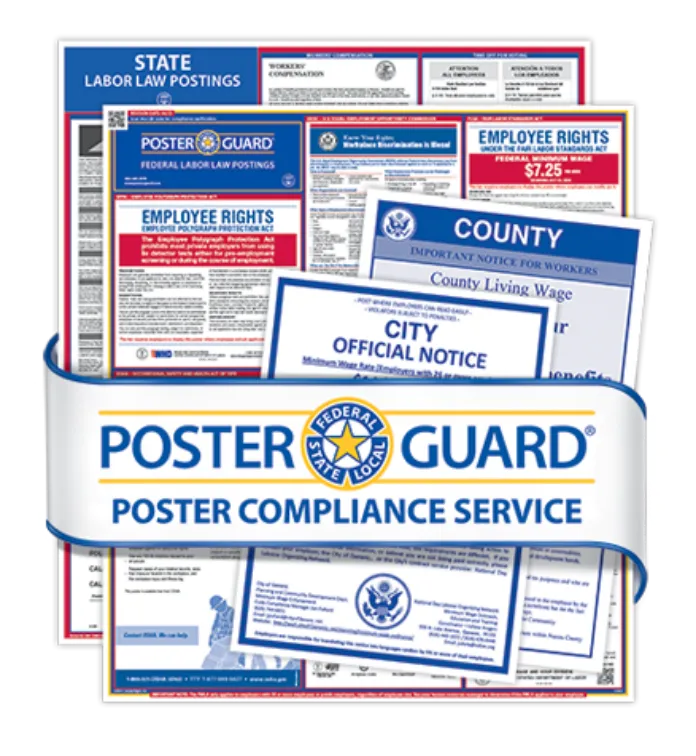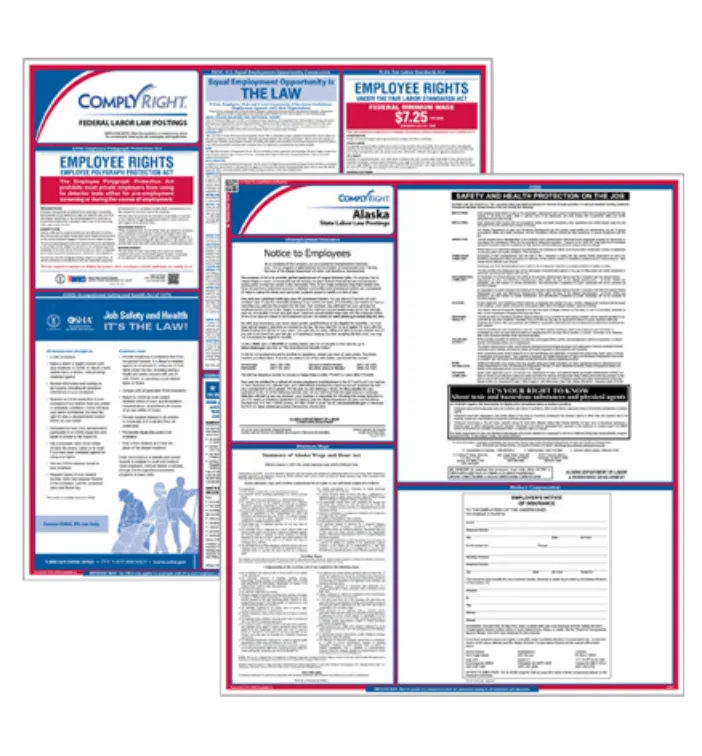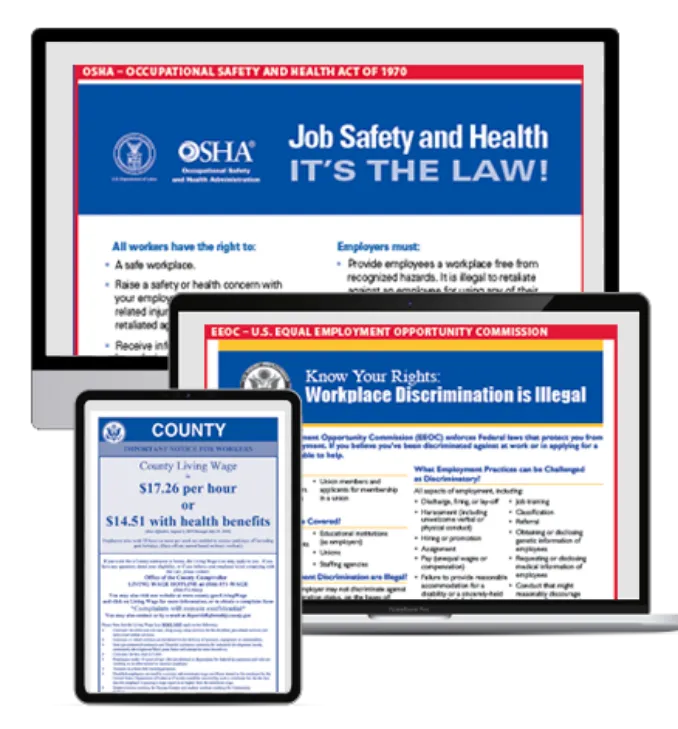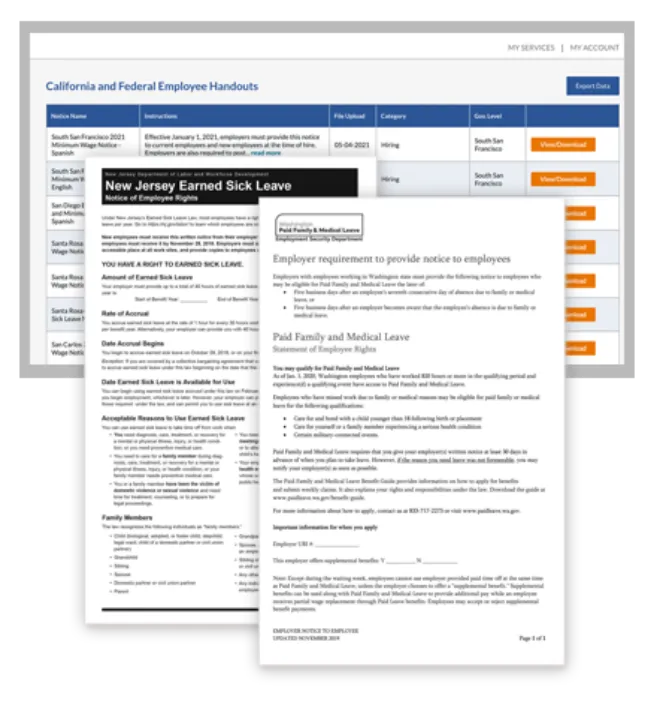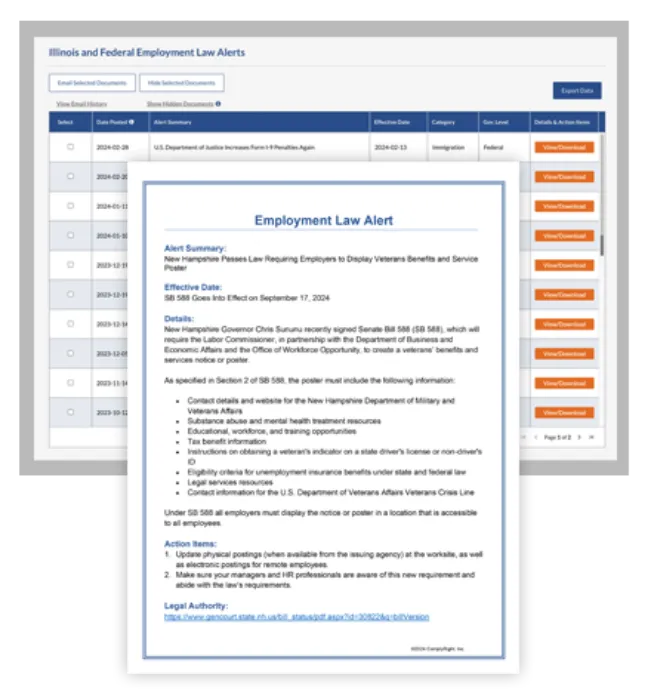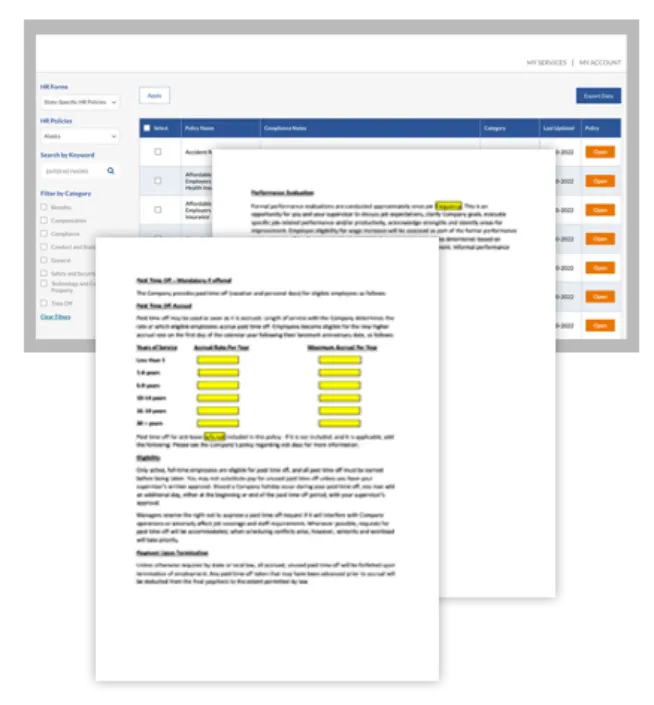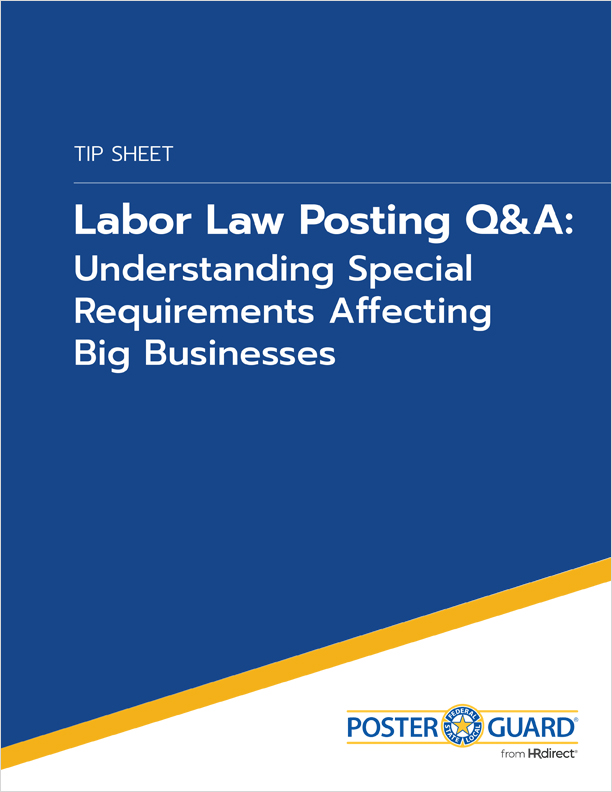As technology becomes more integrated into everyday work life, workplace privacy concerns are increasing. Employers now face growing legal obligations on how they collect, use and store employee information, especially regarding electronic monitoring.
If your business uses security cameras, monitors employee internet activity or tracks digital communications, you're likely subject to privacy laws that require specific notice or consent. With new legislation emerging at the state level, staying updated is more important than ever.
What Is Workplace Privacy?
Workplace privacy refers to an employee’s right to keep certain personal information and activities private, even while on the job. Employers must balance their legitimate business interests — such as security, productivity and compliance — with the growing body of legal protections that safeguard personal data, communications and digital activity.
Some of the privacy issues in the workplace include:
- Monitoring of emails, messages, internet use and calls
- Use of security cameras or audio recordings
- Collection of biometric data like fingerprints or facial scans
- Protection of sensitive personal data, such as Social Security numbers and bank account details
State-Level Privacy Laws Impacting Employers
There’s no one-size-fits-all federal law governing workplace privacy. Instead, many states have created their own rules, some of which now require written notice or consent before monitoring employees.
Here’s a snapshot of privacy laws in key states:
California
California leads in privacy protections, applying both to employees and consumers. Under the California Consumer Privacy Act (CCPA) and the California Privacy Rights Act (CPRA), businesses must disclose the types of personal information they collect and offer employees the rights to access, delete or opt-out of the sale of their data. Additionally, Labor Code Section 980 prohibits employers from accessing employees’ personal social media accounts unless required for a legal reason.
New York
New York has placed electronic monitoring at the forefront of its privacy framework. Employers must notify new hires and post visible notices for current employees if they are monitoring electronic activity such as email, internet use or phone calls. This includes activities like tracking keystrokes or accessing software logs. Video surveillance is also restricted in areas where employees expect privacy.
Illinois
Illinois has stringent rules regarding biometric data under the Biometric Information Privacy Act (BIPA). Employers must obtain written consent before collecting biometric data and must explain how the data will be used and retained.
Massachusetts
Massachusetts requires employers to notify employees if any electronic monitoring is in place. Employers must also implement a Written Information Security Program (WISP) to safeguard sensitive employee data.
Texas
Texas law restricts unauthorized electronic surveillance, particularly intercepting communications without consent. It also requires employers to protect personal employee information.
Washington
Employers in Washington must obtain consent before using surveillance in areas where employees expect privacy, such as restrooms or locker rooms. The state’s data protection laws also require employers to safeguard employee information from unauthorized access.
Colorado
Colorado law mandates timely notification of employees in the event of a data breach. Employers must follow strict consent and storage protocols if collecting biometric data, similar to Illinois' BIPA.
Implementing transparent monitoring policies not only helps with compliance but also fosters trust and openness in the workplace, benefiting both employees and employers.
Why Electronic Monitoring Policies Are a Legal Priority
Even in states without specific privacy laws, electronic monitoring is increasingly scrutinized by federal agencies and courts, especially when employees are not properly notified. To reduce legal risks, employers must clearly define the purpose and scope of their monitoring practices. Specifically, this involves:
- Developing appropriate privacy policies and guidelines
- Displaying and/or communicating policies in the workplace
- Obtaining consent from employees for any data collection
- Documenting employee acknowledgments
Balancing Employer Responsibilities and Employee Rights
While employers have legitimate business reasons to monitor work-related activities, they must respect employees’ rights. Employees are entitled to be informed about monitoring activities, to access their collected personal data, and to be protected from retaliation for exercising their privacy rights.
Ignoring these responsibilities can lead to serious legal consequences. For example, in 2021, Illinois employers faced class-action lawsuits under the Biometric Information Privacy Act after collecting biometric data without proper consent, leading to multi-million-dollar settlements. Beyond financial penalties, businesses may suffer reputational damage, making it harder to attract top talent and maintain positive relationships with clients who expect robust data protection practices.
Best Practices for Compliance
Proactive employers can reduce risk through consistent application of recognized best practices. This begins with regular review and updates to policies, coupled with targeted training for HR personnel and management on notice and consent requirements. Additionally, organizations should:
- Implement security protocols to protect sensitive employee data
- Establish clear communication channels for employees to raise concern
The most successful approaches combine well-defined written guidelines with ongoing dialogue between management and employees about privacy expectations in the workplace.
Stay Ahead of Changing Requirements
Given the evolving nature of privacy laws, staying informed is critical. Our Employment Law Alert Service tracks and reports new and revised federal, state and local laws —helping you stay compliant with privacy and monitoring requirements.

